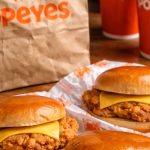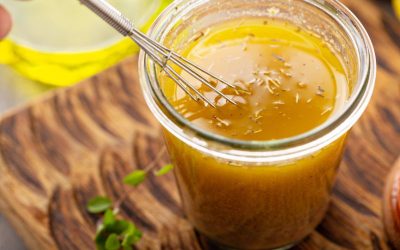
The Myth of “Cooking as Healing”
People love to say things like, “Baking bread is my therapy,” or “Rolling out pasta is how I find peace.”
And sure — that sounds lovely. I’m not here to knock anyone’s healing moment with focaccia. But usually, those moments belong to people who aren’t around food all day. For them, cooking is a pause. A breath. A beautiful, intentional act. There’s even research on how baking and cooking can support mental health — from stress relief to better mood.
For those of us who’ve worked in food for decades, it doesn’t always feel that way. I love food — but sometimes, I don’t love it. Some days the effort feels like climbing a mountain. On those days, a can of tuna with mayo and capers is more than fine. It’s freedom.
Behind the Kitchen Doors
I remember the second year of running my restaurant. We were finally hitting a groove — the team showed up, the vibe was good, reservations were steady. And then the air conditioner broke. In the middle of an Atlanta summer.
I rigged fans and tucked buckets of dry ice into wine coolers just to make the dining room tolerable. When that passed, someone flushed a tampon and clogged the bathroom. We had to shut it down and call a plumber. That’s when I thought: This is such crap. Every time something goes right, something else falls apart.
People glamorize restaurants and chefs and the “passion” behind it all. They don’t see the dry ice and broken plumbing. They don’t know how many times you’ve fought just to keep the lights on.

The Smell of Bacon (and Burnout)
I remember making candied bacon with cinnamon and cardamom for the deviled eggs at the restaurant. People loved that dish. It was a top seller.
Some mornings, I’d pull into the lot with farmers’ market bags in hand and catch the scent of that sweet-spiced bacon drifting through the kitchen. Sometimes it made me happy. It reminded me why I loved doing this.
Other days? I’d smell it and think, If I catch that scent one more time, I’m going to gouge my own eye out with a tasting spoon.
Same bacon. Same smell. Just a different day. Funny how that works.
Why I Still Believe in Food
Even when I’m not in love with food, I still believe in it. Food brings people together. It makes memories. It tells stories — the same ones I talk about in The Table Always Tells the Truth.
It’s why I think about my dad’s lechón or my mom’s arroz con leche. The smell of garlic in a pan. A whiff of lemonade from a high school bodega. Those little sensory hits bring me back to who I am — even when I don’t feel like cooking.
Breaking bread is intimate. Even when I’m not part of the table, I believe in what happens at it.

Wild Expectations of Chefs
Here’s the thing: people have wild expectations of chefs. We’re supposed to always be excited about food. People ask, “What’s your specialty?” like it’s an original question. It’s not. It’s like walking up to a nurse at a party and asking, “What’s your favorite needle to draw blood with?” It’s not clever — it’s tiring.
Some days I want a 20-piece nugget and a cheeseburger combo from McDonald’s. Some days I want to sit on the porch with a ham-and-cheese baguette, butter, olives, and a glass of wine, Stevie Nicks in the background.
Other times, I want to be surprised at a restaurant — like the night our friends took us to Olivia in Tampa. Everything was good. I didn’t make it. I didn’t overthink it. I just got to enjoy it.
And then there are those nights when a friend says, “You’ll love this place,” and I go out of obligation, wishing I’d stayed home with saltines, shaved Boar’s Head ham, and a rerun of Sex and the City.
Saltines and Chardonnay Are Enough
A lot of cooks and chefs feel this way. They just don’t say it out loud. But I will.
Food is a long relationship — not a crush. You love it. You resent it. You come back to it.
And sometimes, you don’t need to make pasta from scratch to prove anything.
Sometimes, saltines and Chardonnay are enough — a meal that shows up in sweatpants instead of sequins, and still counts.








